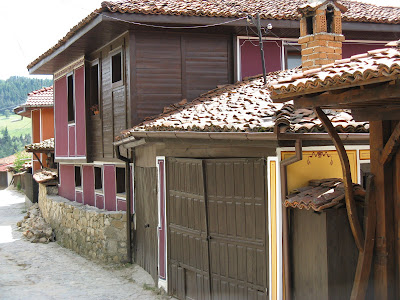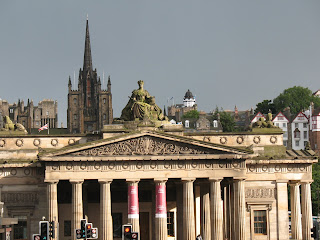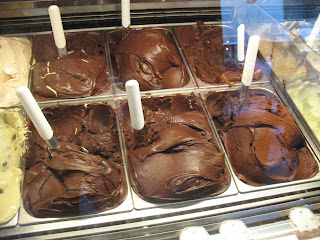The crackle of the Ezan sounded harsher in Marrakech than it did in Istanbul. Somehow the call to prayer felt more prosaic, less like an invitation to a dreamy otherworld as I lay in the riad bed. Somewhere above me doves were waking up on the roof, and out across the city devout Muslims were unrolling prayer rugs. I wasn’t one of them. No, I was rolling myself up in a plush purple quilt, quite willing to let the sun rise without me.
Having traveled to Marrakech for three days of experiences before hitting the road for surf camp on the coast, I was spending more time under this purple plush than I had expected. These experiences screamed with intensity and after spiced couscous lunches, Brett and I generally found our way back through the winding streets and in our solid wooden door for a long process-it-all nap.
Marrakech was a city of blinding white stone plazas, mopeds, snake-charmers, twisty roads melting into sunlit stucco, veils of heat and veils of silk. It was a Muslim city, and therefore a city of Zakah – the giving of alms – one of the five pillars of Islam.
I had little knowledge of Islam or Zakah upon arrival, though I understood a few basics about the prophet Muhammed and the pilgrimage to Mecca from my 9th grade “Introduction to Religion” class. I also knew the post 9-11 backlash against Muslims had been awful, that I loved the sound of the call to prayer, that I thought it was a lovely thing to watch my star player bravely refuse to take a day off from practice when Ramadan overlapped with our tennis season.
Like in every other big city I’ve visited, people begging filled many of the urban crevices of Marrakech. But there was one key difference. People were giving money to the people begging. Each coin dropped into each hand fulfilled a bit of the command for Zakah, and each giver walked away blest, as the gift blessed the person in need. Those without sat patiently, and those with, shared. What an amazing sight to see. Though we couldn’t claim to be practicing Zakah, Brett and I began to carry pocketfuls of chang so we could participate in this gentle practice of sharing.
One day as I slipped out of the shaded buzz of the souks, I found myself in a sunlit courtyard, dark-hued rugs draped for sale across a huge wall on one side. On the other side, olive vendors proffered jars of green beauty – olives stuffed with garlic, almonds, onions, dusted with herbs, swimming in rich olive oil. Tourists, locals on mopeds, even the occasional wooden cart or pony flowed through the courtyard. Two young children were working the area, trying to sell three punching balloons dragging behind them on long strings.
The older girl was not so old that she had to cover the long wave of dark hair falling down her back. Her shoes reminded me of the kind of shoes you can buy at Walmart, except the way they look years later on a dusty card table at a rummage sale. As I watched from an olive counter, she spotted a young couple just entering the courtyard.
The man and woman walked near each other but did not hold hands. Each licked a dripping ice cream cone. They separated. As the woman browsed the wares in the courtyard, the man looked up to see the older girl approaching, her blue punching balloon extended toward him. How could she be so bold? A man in his mid-twenties, with his girlfriend, could hardly have need for a punching balloon. Yet the young girl seemed unafraid, and soon, though she still had possession of her punching balloon, she was licking a dripping ice cream cone. His ice cream cone. Zakah. As I peeked through the crowd, I saw her younger sister licking one of her own, the young woman’s. Zakah.
Sharing an ice cream cone is so simple. So is sharing an arm. The next day as I fended off the constant calls of the stall owners to “step inside. Just for a second. Very good price. Very nice. Very lovely” I got stuck in a crowd stuck in an alley. We were near the sweetest souk, where merchants reigned on high from above neatly balanced piles of nougats, pistachio cookies, and colored taffies. What was the hold-up? A donkey tugging at a high-piled cart filled most of the lane, so the flow of human traffic was limited to one person across. No easy thing for a crowd this size. No easy thing for an older blind man trying to make his way home. Pressed against the entrance to yet another shop, I watched a younger man give his arm to the older man, calling ahead for the busy shoppers to make way for them as they passed the donkey cart. The way parted, and the old man slipped safely through. I expected the young man to go with him, assuming it was his son or nephew. But no, shaking his head worriedly, the young man went back the other way to his stall. He just wanted to help, and he worried that he couldn’t help the old man – a total stranger – any more. Zakah.
These days it seems almost all the public discussion about Islam can be summed up in a few broad strokes – people afraid of terrorism, condemning a religion, people afraid of hate, condemning condemnation. There is so much more to know than this, so much more to learn. I don’t claim to have that knowledge, only a few experiences that opened a window to something more. How might life in everyday America change with the addition of Zakah? Last week as I left the grocery store unwrapping an ice cream bar, I kind of hoped I would see someone who needed it more than I did. I looked, but no lonely child appeared. I plan to keep looking. Zakah. Pass it on.
















































.jpg)






